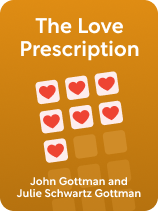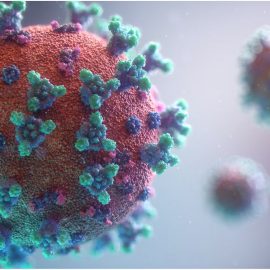

This article is an excerpt from the Shortform book guide to "The Love Prescription" by John Gottman and Julie Schwartz Gottman. Shortform has the world's best summaries and analyses of books you should be reading.
Like this article? Sign up for a free trial here.
How can you deepen your connection with your partner through touch? What types of physical affection are most beneficial for your relationship?
In The Love Prescription, Julie Schwartz Gottman and John Gottman affirm that physical affection plays a crucial role in romantic relationships. It’s important to understand your partner’s preferences and comfort levels.
Read on to learn how to show physical affection and to understand why it’s so important to your relationship.
Showing Physical Affection
The Gottmans explain that physical affection is vital to physical health and the health of your romantic relationship. They offer practical advice on how to show physical affection to your partner and discuss a couple of reasons why physical affection is an indispensable part of your relationship.
The touches you share with your partner can be very beneficial—for your mind, your body, and your relationship. But the authors emphasize that it’s important to understand what your partner is comfortable with and share your own preferences with them so that you’re both receiving physical affection that’s comfortable and desirable.
Your culture and past experiences can influence what types of touch you and your partner find comfortable and desirable. The Gottmans cite a study suggesting that touch behaviors vary widely across cultures. If your partner has a history of abuse, touch can do more harm than good if it isn’t done considerately.
To help your partner feel safe and excited about touch, ask them what types of physical affection they’re open to receiving. Then, touch as much as possible within the boundaries you establish. The authors challenge you to a few touch goals each day:
- Hug for 20 seconds. A 20-second hug has been shown to provide a significant dose of beneficial oxytocin to your bloodstream.
- Have a six-second kiss.
- Hold hands as often as you can.
(Shortform note: The Gottmans suggest forms of touch to boost oxytocin and bonding, but are there touchless activities that boost oxytocin? According to experts, you can naturally boost oxytocin by eating food, exercising, or listening to music. Doing any of these activities with your partner will further boost your oxytocin levels. So, if you and your partner prefer not to touch much or you simply need a break from physical contact (say, on a hot night camping), you can opt for these alternative methods to keep the love alive.)
| Make Conversations About Sex Easier Because our cultures and past experiences shape our unique sex preferences and needs, it’s important to communicate effectively about sex. In The Seven Principles for Making Marriage Work, John Gottman and Nan Silver also emphasize that healthy sex comes down to effective communication. Here are their tips to make conversations about sex easier: Be kind. Remember that the point is to improve your sex life, not to make your partner feel bad about whatever they’re doing. Establish rituals around asking for sex. Having a standardized way of asking will help you feel less vulnerable. For example, kissing your partner’s neck might indicate that you want sex; your partner might respond enthusiastically when interested but turn their head when uninterested. Be considerate when refusing or when you’re being refused. If you’re doing the refusing, express that you’re still attracted to your partner. If you’re being refused, receive your partner’s decision without negative comment. |
The Importance of Physical Affection
First, as mentioned above, physical affection releases oxytocin. Oxytocin is a hormone that enhances feelings of intimacy and trust, bonding you and your partner. It also helps your body relax and heal by shifting you into a parasympathetic “rest and repair” mode. On the other hand, touch deprivation increases the stress hormone cortisol. When this hormone activates chronically, it increases your blood pressure, inhibits digestion, and weakens your immune system. For example, one study the authors cite found that expecting mothers who received 15 minutes of daily massage from their partners had a lower likelihood of postpartum depression (22%) compared to those who didn’t receive massages (66%).
(Shortform note: Other experts have found oxytocin to have other benefits for your mental and physical well-being. In The Upside of Stress, Kelly McGonigal references a study where participants who watched their loved ones experience pain from electric zaps felt less afraid and more empathetic if they held their loved one’s hand during the test (releasing oxytocin). Beyond helping you cope with stress, oxytocin has also been shown to reduce physical pain. A similar study measured the effects of holding hands on the recipient of electric shocks, showing that this physical connection also reduced the feeling of pain caused by the test.)
Second, more touch can lead to increased libido for you and your partner, which can be fun for both of you. However, the Gottmans explain that touch is valuable in and of itself, so don’t feel pressured to progress toward sex every time. Enjoy nonsexual touch for all of the ways it improves trust and intimacy.
(Shortform note: One expert explains that progressing from cuddling to sex most of the time can lead to less nonsexual touch. This is because if the intimate touches you share with your partner typically lead to sex, your partner may deny intimate touches when they don’t feel like having sex to avoid misleading you. This could result in both of you missing out on the nonsexual touch you desire along with the ways it boosts trust and intimacy.)

———End of Preview———
Like what you just read? Read the rest of the world's best book summary and analysis of John Gottman and Julie Schwartz Gottman's "The Love Prescription" at Shortform.
Here's what you'll find in our full The Love Prescription summary:
- How small acts of love build healthy relationships
- Why and how you should make time for date night no matter what
- The consequences of not communicating your needs






